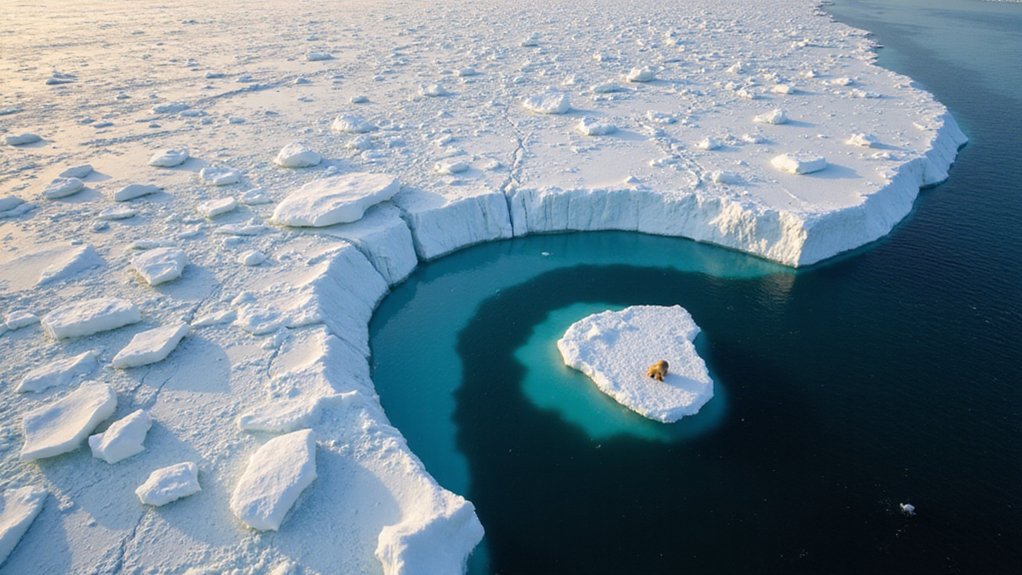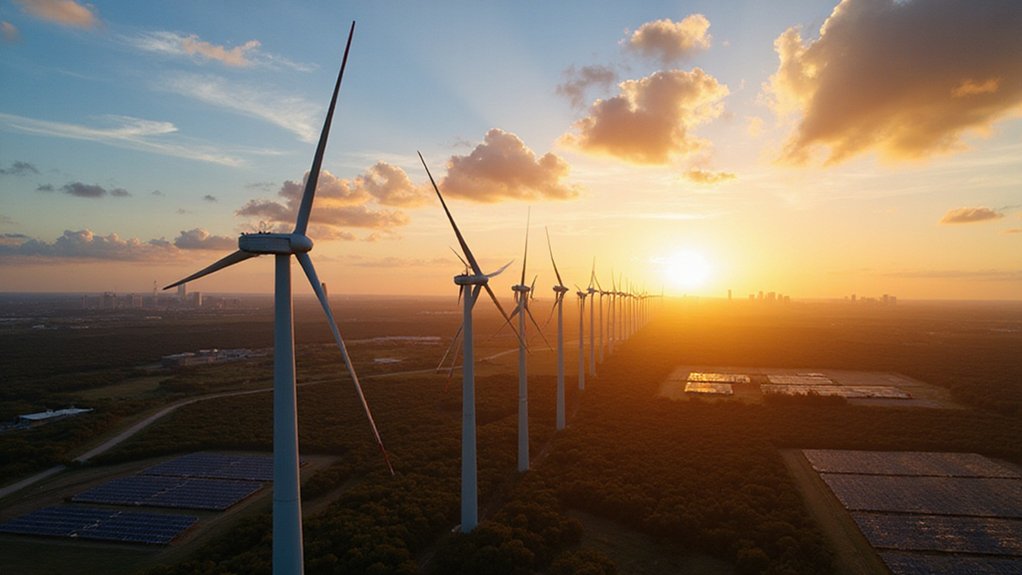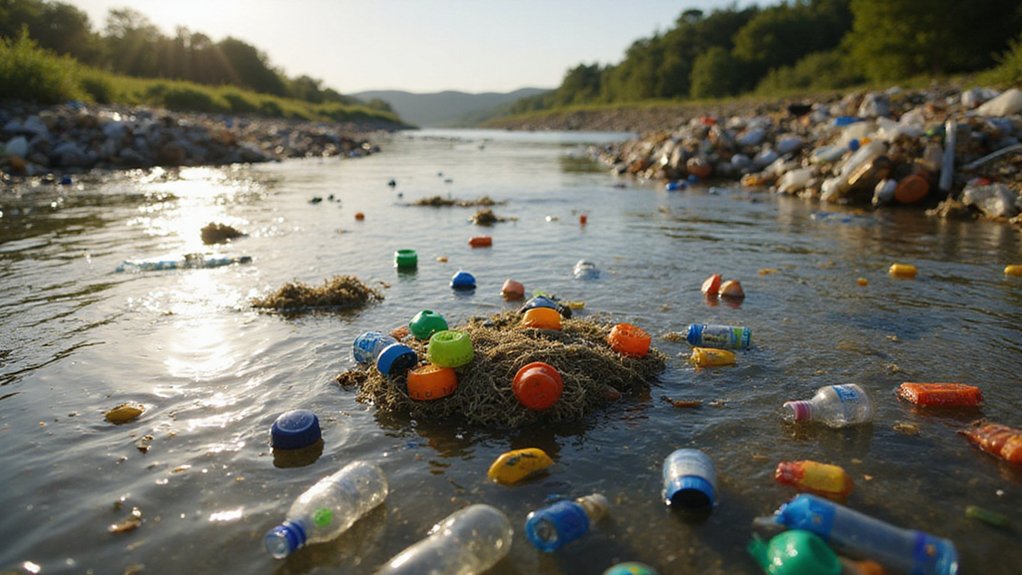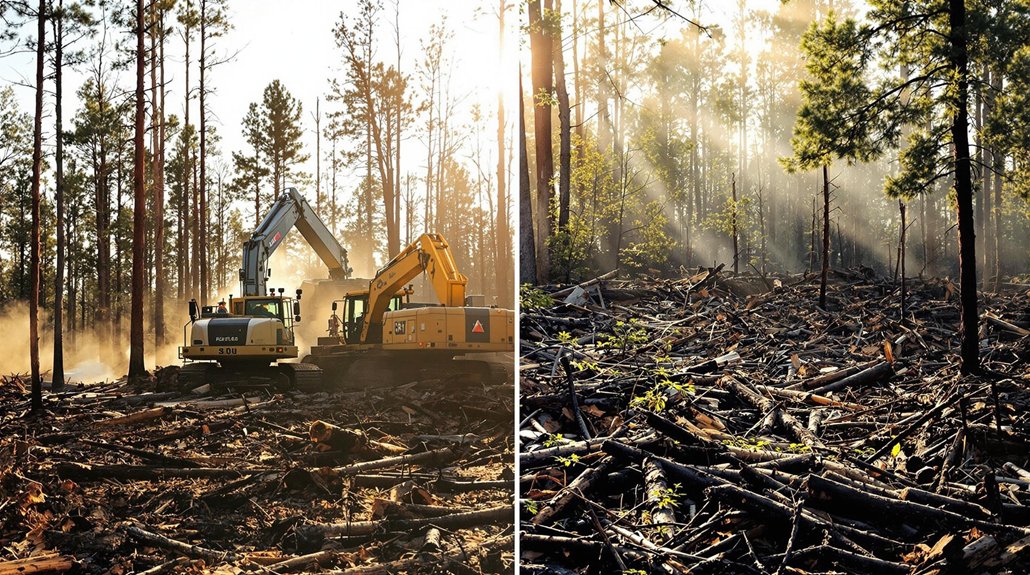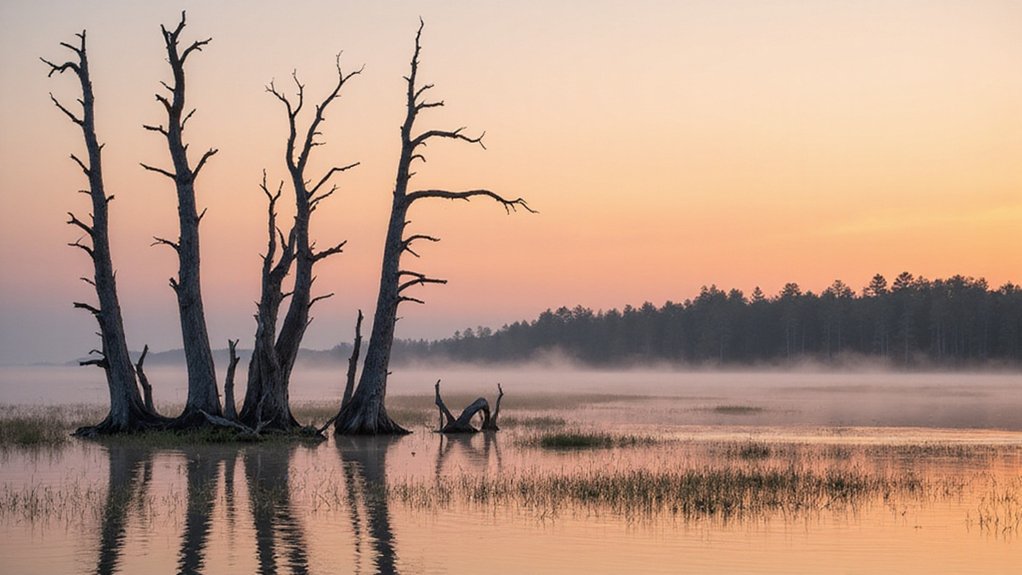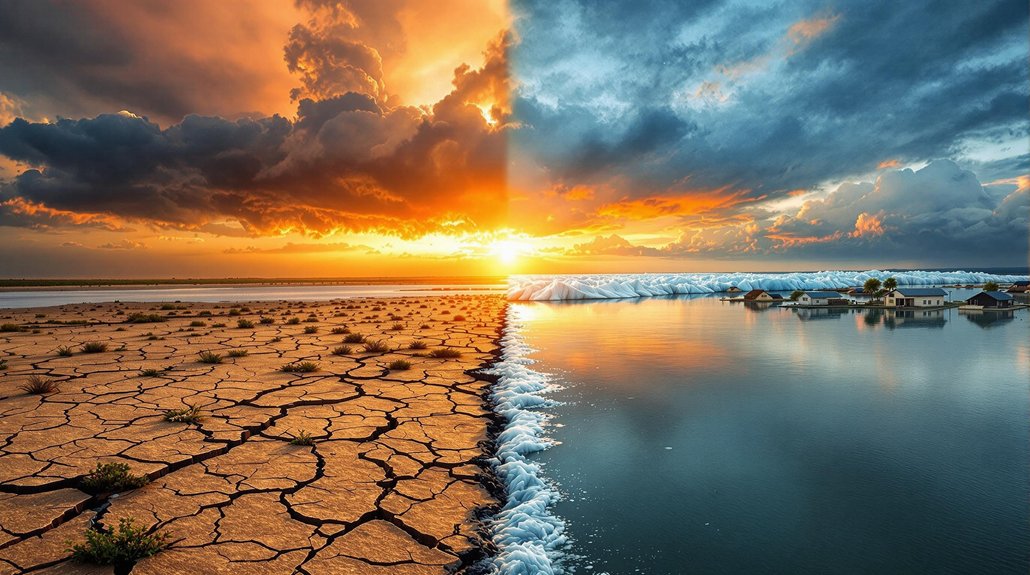Melting polar ice doesn’t just threaten polar bears. It’s a planetary emergency. Rising seas will swallow coastal cities while disrupting ocean currents that regulate our weather. The Earth’s crust is literally warping from weight redistribution. Thawing permafrost releases methane, creating vicious feedback loops. Wildlife starves as habitats vanish. It’s like unplugging Earth’s freezer and watching everything inside rot. The consequences stretch far beyond the poles.
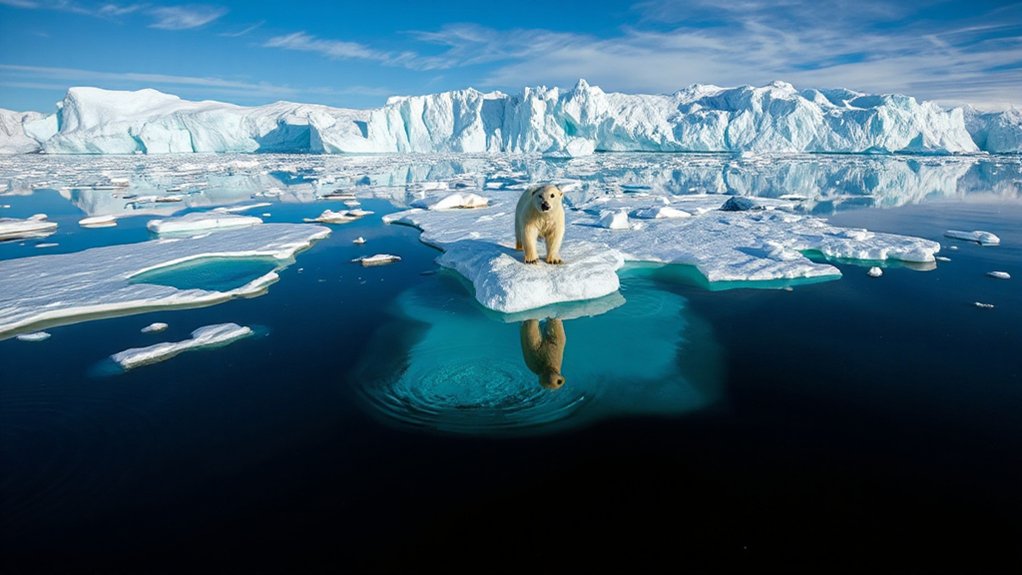
As the world’s ice caps continue to shrink at unprecedented rates, the consequences stretch far beyond just polar bears losing their homes.
We’re talking about potential sea level rise of 195 feet if all ice melted. Yeah, that’s not a typo—195 feet. Pretty much goodbye to every coastal city we’ve ever built.
The ocean isn’t just getting higher; it’s getting angrier. Storm surges hit harder when sea levels rise. Beach erosion accelerates. Those quaint oceanfront properties? They’re becoming submarine real estate investments. Not exactly what those buyers had in mind.
But wait, there’s more! Polar ice actually helps regulate Earth’s temperature by reflecting sunlight back into space. Less ice means more heat absorption. More heat absorption means faster melting. See the problem? It’s like unplugging your freezer while simultaneously turning up the heat in your kitchen. Brilliant move, humanity.
The ice-albedo feedback loop is Earth’s death spiral, courtesy of our species’ stunning environmental negligence.
Then there’s the wildlife impact. Polar bears and walruses need ice to hunt and rest. No ice? No food. Simple math. Marine food webs are collapsing as key species lose their habitats. Turns out ecosystems don’t appreciate rapid, catastrophic change. Who knew?
The effects aren’t limited to polar regions either. Melting ice is messing with ocean currents that regulate weather worldwide. The Atlantic Meridional Overturning Circulation—basically Earth’s climate conveyor belt—is slowing down. Fisheries are collapsing. Weather patterns are going haywire.
Even the planet’s physical structure is changing. The Earth’s crust is actually warping as massive ice weight redistributes. Recent satellite data from 2003 to 2018 showed horizontal shifting of crust beneath Greenland, Antarctica, and Arctic Islands. This affects everything from gravity to tectonic activity. Our planet is literally changing shape.
Worst of all are the feedback loops. Thawing permafrost releases methane, a super-potent greenhouse gas. This causes more warming, which causes more melting, which causes more methane release. The complete Greenland melt alone would contribute to a catastrophic 20-foot rise in global sea levels. It’s a vicious cycle that’s picking up speed.
Polar ice isn’t just some distant frozen wasteland. It’s a crucial planetary system, and it’s unraveling fast. Ocean acidification further compounds these problems as seawater absorbs more carbon dioxide, threatening marine ecosystems already stressed by warming waters.
